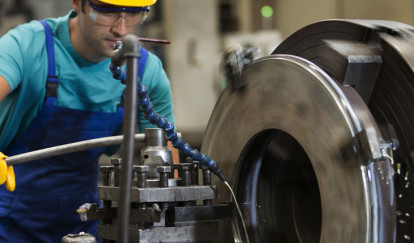
Share This Article
Thanks to the Occupational Safety and Health Act of 1970, employees have a right to a safe work environment free from known dangers. While employers strive to increase workplace safety, policies and guidelines by themselves won't keep you safe. Workers must strictly adhere to and openly communicate about their organization's safety practices. In other words, if you see something unsafe – say something! By identifying unsafe behaviors and conditions, you contribute to the overall safety of your coworkers.
As a Richmond workers' compensation attorney, we see many clients who have been hurt at work. That's why we're providing these 10 Tips to Keep Employees Safe:
- Respect Machinery and Tools. Using heavy tools or machinery requires training on correct usage, taking precautions, and avoiding shortcuts, no matter how tempting. For example, use the right hammer for the job. Always wear safety goggles around power equipment. And if you're driving a forklift? Follow safety procedures to the letter, even if you're short on time.
- Focus on Ergonomics. Our backs and necks suffer from postures that misalign them, especially during repetitive tasks. Desk workers: keep shoulders in line with your hips – like Mom said, "Don't slouch!" ? to help prevent back problems. Adopt an ergonomic workstation to keep everything within easy reach. If your job requires you to pick up and carry heavy loads, maintain a straight back and let your legs do the lifting; correct form protects your healthy spine. Never twist while you attempt to lift a heavy load. If it's too heavy, ask for help.
- Be Alert and Aware. To stay safe at work, know your surroundings, and familiarize yourself with the particular dangers of your job. Be aware of machinery and the potential hazards it poses. Knowing your surroundings and possible risks will significantly lower your chance of being hurt on the job.
- Leverage Mechanical Help. Humans created tools as far back as the Stone Age to make life easier, so why does modern man insist on carrying heavy loads instead of using a dolly or wheelbarrow? Is saving two minutes of time worth wrenching your back ? or worse? Wheelbarrows, conveyor belts, forklifts and dollies help us avoid injuries. Take advantage of these mechanical aids whenever possible.
- Make Regular Breaks a Habit. Being over-tired leads to mistakes that lead to injuries; prevent them by taking regularly scheduled breaks. It's hard to stay alert during repetitive tasks, but it's crucial to do so. One tip to consider: schedule the most potentially dangerous jobs when you're fresh, like upon morning arrival or just after a break.
- Report Hazardous Conditions. The communication piece is key to workplace safety. If you see something that looks unsafe or risky or see someone doing something unsafe or risky, report it. Companies have a legal obligation to provide safe working environments. You are protected under OSHA from any retaliation when you report unsafe conditions.
- Know Your Exit Strategy. In an office or other building, identify where the closest exit is in case of an emergency. In construction scenarios, make sure you're familiar with the exit most easily accessible to your area. If you're involved in trenching, use best practices by positioning a ladder or ramp every 25 feet; follow safety precautions closely to avoid trench-collapse injuries.
- Stay Sober. This one should go without saying. And yet we have to say it. Using alcohol or drugs – even some prescription drugs – lowers inhibitions and fosters risky behavior in the workplace. At work, you need good judgment, awareness, coordination and motor control. When these are impacted by alcohol or drugs, people get hurt and can even die. Say no to alcohol and drugs, especially during the workday!
- Wear Personal Protection Equipment. Use earplugs to prevent hearing loss in noisy environments. Don those goggles to protect your eyes from potential flying debris. And wear a respirator to keep the air you breathe safe. Always take advantage of personal protection equipment. Not only can it keep you from getting hurt, there's another reason: if you're injured at work, even with the world's best workers' compensation lawyer, you likely won't qualify for benefits if you were ignoring mandatory safety precautions when you got injured.
- Lower Workplace Stress. Stress is an epidemic in our country. We're overworked and are asked to accomplish more than time allows. Family conflicts or trouble with a coworker can add additional worries. Stress can cause your concentration to waver. If this happens during crucial workplace tasks, it can lead to injuries. If you're stressed out at work, address the problem with your supervisor.
Every employee can contribute to workplace safety. Good judgment and strong communication minimize your chances of getting hurt, and if you are injured, call us now to discuss your case.
If you have been injured at work or through the negligence of another individual or entity, contact us at (804) 999-9999 or or use the form below to connect with our legal team. We will fight to get you the justice you deserve.
